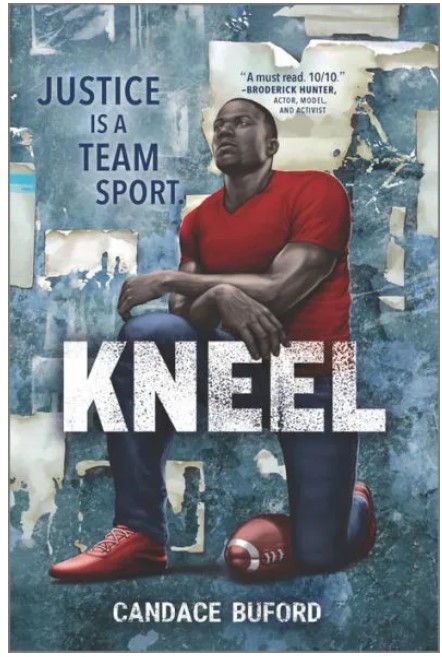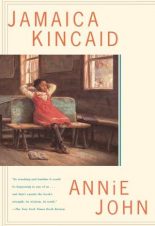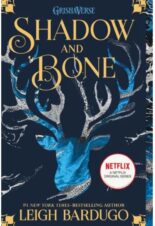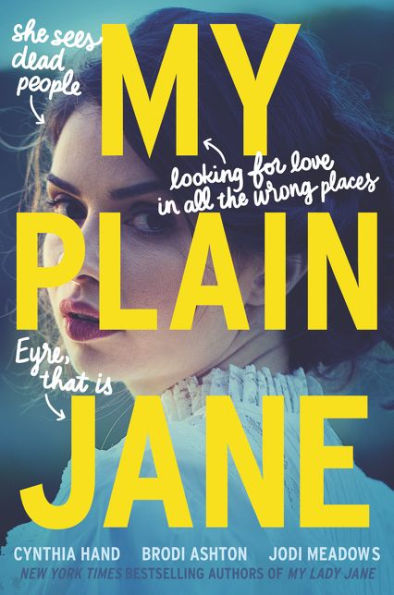
Buy This Book
“There really was a girl. (Two girls, actually.) There was, indeed, a terrible treachery and a great fire. But throw out pretty much everything else you know about the story. This isn't going to be like any classic romance you've ever read,” Narrator. -My Plain Jane
My Plain Jane
by Cynthia Hand, Brodi Ashton, & Jodi Meadows
AR Test, Strong Female
13+
Score
4.8
480
There has been a murder at Lowood school, and aspiring writer Charlotte Brontë is on a mission to uncover the culprit. When an agent from the Society for the Relocation of Wayward Spirits shows up to interrogate the ghost of Mr. Brocklehurst, Charlotte is convinced that she can be of assistance. However, the mysterious Mr. Blackwood seems more interested in talking to her friend Jane Eyre than solving the case. Rumors of romance quickly spread through the school, but Charlotte can’t help but hope this problem might be supernatural in nature. After all, that would make a much better story.
As the star agent at the Society, Alexander Blackwood uses his rare ability to see ghosts to help him capture and relocate particularly pesky spirits. However, his real goal is to find whoever is responsible for his father’s murder and enact his revenge. With royal funding being cut and seers dying in the line of duty, it’s up to Alexander and his woefully incompetent assistant Branwell to keep the Society afloat. The last thing he expected was to discover an unusually powerful seer while out on a routine relocation. Now in order to save the Society, Alexander needs to convince Jane Eyre to join as an agent…a task that is much easier said than done.
Jane Eyre might have the ability to see ghosts, but she has absolutely no interest in becoming a Society seer. Some of her best friends are ghosts, and she would never dream of forcefully relocating them. Instead, she’s taken a job as a governess at Thornfield Hall under the employment of the enigmatic Mr. Rochester. While Jane finds herself falling for the brooding master of the house, Charlotte and Alexander accidentally uncover some disturbing supernatural secrets that have the potential to put both Jane and the entirety of England in danger.
In this twist on Charlotte Brontë’s novel Jane Eyre, co-authors Cynthia Hand, Brodi Ashton, and Jodi Meadows take readers on a wild, slightly spooky, romp through pre-Victorian England. You don’t have to have read Jane Eyre to thoroughly enjoy all the haunted hijinks, but good-humored fans of the classic will likely take pleasure in the ways that My Plain Jane pokes fun at its source material.
The always-curious Charlotte and charmingly grumpy Alexander make a compelling pair as they attempt to get to the bottom of an increasingly complex mystery, but it’s Jane herself that I believe readers will find themselves rooting for as she discovers that even very small and plain people can be very powerful when they let themselves be.
Sexual Content
- Charlotte and Jane are both fascinated by the idea of boys and, despite not having the best of prospects, “they could still imagine themselves being swept off their feet by handsome strangers who would look past their poverty and plainness and see something worthy of love.”
- Jane thinks that she wouldn’t call Alexander handsome because his jaw is too square and his hair too long. The narrators explain that “In the pre-Victorian age, [a] truly handsome man should be pale—because being out in the sun was for peasants—with a long, oval-shaped face, a narrow jaw, a small mouth, and a pointy chin.”
- Jane considers herself to be quite plain-looking, but “to ghosts, however she was the epitome of beauty. This left Jane to believe that something was seriously askew in the afterlife.”
- Just like all the other ghosts, Helen thinks that Jane is beautiful, but Jane thinks, “it was Helen, with her porcelain complex, blue eyes, and long golden hair, who would have turned heads if she were still alive.”
- Helen tells Jane that she’s too beautiful to be a governess because “you’re so lovely that the master of the house wouldn’t be able to help falling in love with you.”
- When Alexander arrives at Lowood, the girls are excited because they don’t usually see boys. They immediately decide that he is there to court one of the teachers. “This is like a real live romance novel,” one girl said. “I can’t stand the tension. Who will he choose?”
- Charlotte doesn’t believe the rumor that Alexander proposed to Jane. “Charlotte believed in love at first sight, of course—she dreamed that one day, at some unexpected moment, such a thing might even happen to her—but she firmly disapproved of marriage at first sight.”
- An argument between Jane and Charlotte starts a new rumor at Lowood “that Charlotte Brontë was also madly in love with Mr. Blackwood, and she and Jane Eyre would now be forced to compete for the man’s affections.”
- Jane describes Mr. Rochester as having “the most handsome face she’d ever seen. Pale and oval in shape, sideburns all the way down to his pointed chin (which would technically make it a beard) and framing the most perfectly tiny lips she’d ever beheld.”
- The narrators defend Jane falling for Rochester by explaining that her perception of men was “gleaned mostly from books and art that tended to glorify tall, dark, and brooding ones. The broodier the better. And Mr. Rochester was among the broodiest.”
- Jane admits her feelings for Mr. Rochester to Charlotte and tells her, “he made me love him without even looking at me.”
- Charlotte is a little disappointed that Mr. Rochester might be a murderer because it would “make him entirely inappropriate as a knight in shining armor for Jane.”
- During an argument, Alexander tells Charlotte, “You should stop poking your cute button nose where it does not belong.”
- Charlotte bursts into Alexander’s apartment unannounced and catches him in a compromising situation. “He was wearing trousers, thank the heavens. But she’d obviously interrupted him in the middle of shaving—there were still traces of shaving cream on his face. His hair was wet and gleaming, dripping onto his bare shoulders. His bare shoulders. Because he was not wearing a shirt. Which meant, by pre-Victorian standards, anyway, he was more or less completely naked.”
- Charlotte gets bored while reading the weddings and obituaries page of the newspaper and imagines more dramatic stories behind them, referencing several classic novels. She muses for example, “Mr. Edgar Linton of Thrushcross Grange, would like to announce his engagement to the lovely Miss Catherine Earnshaw, the wedding to take place on the twenty-first of September, even though the lady would much rather marry a ruffian named Heathcliffe. But she shall forego her passion in order to secure social ambition.”
- Alexander and Charlotte disrupt the wedding of Mr. Rochester and a possessed Jane, claiming that Rochester is already married. They read a letter from Mr. Mason that says, “Edward Fairfax Rochester was married to my sister Bertha Antoinetta Mason, daughter of Jonas Mason, merchant, and Antoinetta, his wife, at St. Mary’s Church, Spanish Town, Jamaica.” Mr. Mason claims that his sister is still alive and that he saw her himself three weeks prior.
- Rochester tells Jane that she is the love of his life, but that they don’t need to be married. He suggests they move to the south of France to live as brother and sister. “Jane, we would have separate living compartments, and we would only spare a kiss on the cheek for birthdays.”
- Branwell offers to marry Jane despite not loving her, telling her it could be an arrangement between friends. She declines his offer, telling him, “Well, that’s just the most romantic thing anyone has ever said to me! At least since the last idiot who followed it up with trying to kill me.”
- Charlotte is overwhelmed by her emotions after being told that Alexander is dead, but she doesn’t understand why because “What she’d felt for Mr. Blackwood hadn’t been romance, as Charlotte had previously defined romance. There had been no stolen glances—not that she would have been able to see them. No flirtations. No tortured yearning of her soul, the way Jane felt for Mr. Rochester.”
- Charlotte and Branwell decide to go search for Alexander’s ghost. On the way, Charlotte practices the following speech in her mind: “Mr. Blackwood. Alexander. I would like to inform you that you are (you were, I suppose, so sorry) the keenest, most attractive, most intelligent and thoroughly engaging boy that I have ever met, and I am filled with sorrow on account of your untimely demise.”
- Wellington incorrectly assumes that Jane and Alexander are in love. Jane corrects him, saying, “I have a thing for Rochester. It’s not healthy.”
- When Charlotte dies briefly after having been shot, Alexander finally admits his feelings for her. “‘I care about you Miss Brontë,’ he rasped. ‘And now I’m too late in saying it.’”
- Charlotte realizes that after her brush with death, she has gained the ability to see ghosts. Alexander gives her his Society mask, and she is so excited that she kisses him. “Before he could finish speaking her name, she pushed herself up a little and pressed her lips against his. His eyes widened in surprise, and immediately she backed away from him, giving an embarrassed cry.”
- Charlotte tries to apologize for being too forward, and Alexander cuts her off with a second kiss. “It was the same as her kiss to him—just a touch of his lips to hers. A question. A hope. A promise.”
- Charlotte reads Jane an excerpt from her book, the “reader, I married him” passage from Jane Eyre, and Jane tells her, “I don’t think I’ve ever heard a story that’s so perfectly romantic.”
- Charlotte is a little embarrassed at the thought of Alexander reading her story because “so much of what she’d written about Jane Eyre’s feelings for Mr. Rochester had been inspired by what she herself felt for a certain Mr. Blackwood.”
- Jane and Charlotte meet Mr. Edward Rochester the Second, the Rochesters’ age-appropriate son, who Jane is immediately attracted to. “There was something so entirely familiar about his dark, intelligent eyes. A certain brooding intensity. She was overcome by the sudden notion that this boy possessed the ability not only to see her, standing there awkwardly in the blue dress and her paint-smeared smock gazing up at him, but into her as well. Like he could see into her very soul.”
Violence
- Brocklehurst, the very cruel man who runs Lowood school, has been murdered during his most recent inspection. “He’d settled down by the fire in the parlor, devoured the heaping plate of cookies that Miss Temple had so kindly offered him, and promptly keeled over in the middle of afternoon tea. Poisoned. The tea, evidently, not the cookies. Although if he’d been poisoned by the cookies the girls at Lowood school felt it would’ve served him right.”
- While Mr. Brocklehurst was in charge of the school, many girls died from the Graveyard Disease. “There are many terms for this popular illness over the course of history: the Affliction, consumption, tuberculosis, etc., but during this period the malady was most often referred to as ‘the Graveyard Disease,’ because if you were unlucky enough to catch it, that’s where you were headed.”
- Charlotte suspects that Jane might have been the one who murdered Mr. Brocklehurst. Jane is known for disliking the man, and when she comments on how much better life at Lowood is without him, Charlotte observes, “There was something so satisfied about the tone in Jane’s voice when she said it. It seemed practically a confession.”
- Jane watches two agents from the Society for the Relocation of Wayward Spirits confront a ghost known as The Shrieking Lady, who is causing significant destruction in a pub. “The agent in charge leapt nimbly through the air and landed beside the ghost. ‘Get the watch! It’s—’ But he couldn’t finish the order because the redhead clumsily lunged forward and dove right through her and landed in a pile next to Jane’s hiding place behind the bar.” The full altercation is described over about seven pages.
- Jane recalls the night that her friend Helen Burns died. “Jane clasped her friend’s hand tightly, trying to ignore how cold Helen’s fingers were. They fell asleep like that, and when she woke in the morning, Helen’s body was pale and still. And standing above it was Helen’s ghost.”
- Alexander has been trying to solve his father’s murder for the past fourteen years, “but he didn’t have much to go on at the moment, only the fuzzy memories of a frightened young boy. Which made revenge quite difficult.”
- Helen says that on the day she met Jane, she got in trouble with a teacher who “struck [Helen’s] neck with a bundle of sticks.”
- Jane says that before she befriended Helen, she had formulated a plan to “escape Lowood and beat [her] Aunt Reed with a very large stick.”
- The Duke of Wellington instructs Alexander to recruit Jane into the Society because two of their four seers have been “killed in the line of duty.”
- Jane discovers in the middle of the night that Mr. Rochester’s bed is set on fire. “…the flames had grown onto the canopy, and one burning piece of fabric had dropped on the bed, igniting the blanket.”
- Helen gets so angry that people are calling Jane plain that it causes a destructive physical reaction. “A vase flew across the room, whizzing past Rochester’s head before it shattered against a wall.”
- Alexander remembers the day his father died. “He’d heard the argument between the killer and his father. He’d felt his father’s anger as the killer left the house in a fury. And he remembered the impacts of his footfalls as he, a young boy, went racing after the killer. Then. The explosion.”
- Alexander is convinced that Mr. Rochester is his father’s murderer and tells Charlotte, “I should simply kill him. It’s what he deserves. Everything in my life has been leading up to this point.”
- Mason, one of Mr. Rochester’s guests, gets stabbed during the night and Jane is left to take care of him. “Mr. Mason lay on the sofa there, looking pale and drenched in sweat. A ball of bloody rags lay beside him, the freshest still bright red.”
- Branwell accidentally touches the teacup holding the spirit of Mr. Brocklehurst and becomes possessed. Mr. Brocklehurst attacks Alexander with the teacup. “Alexander tackled Brocklehurst and grabbed for the teacup, but the china bashed against his temple and made him blink back stars. It was a shockingly sturdy teacup.”
- Rochester attempts to propose to Jane, telling her, “I believe there is a string below your rib, and it stretches across class and age to me, and it is attached beneath my rib. And if you find another suitable position, and leave me, you will pull it out and I will bleed.”
- Mason claims that his sister Bertha, Mr. Rochester’s wife, is still alive. “She’s mad perhaps, but who wouldn’t be mad after what he’s done to her. He’s had her locked in the attic for fifteen years.”
- A possessed Jane attempts to strangle Charlotte after she tries to convince her not to marry Mr. Rochester. “Jane squeezed harder. Dark spots swam before Charlotte’s eyes. The world was fading. She gave one last desperate push at her attacker…and her fingers caught the pearl necklace around Jane’s slender neck. She pulled and the necklace broke free.”
- Jane observes Bertha Rochester, who has been locked in an attic for fifteen years. “She was thin to the point of being malnourished. There were scratches and cuts up and down her arms, and her head hung low as if she were asleep.”
- When Jane rejects Mr. Rochester, he tries to attack her and Charlotte. Alexander fights Mr. Rochester so that the girls have time to escape. “[Alexander] attacked using a new move called the Three Ladies’ Luck, thinking his opponent might not know how to counter it, but Rochester was clearly a man who’d continued his sword studies throughout his life, because two sharp clacks of the blades and Alexander was blocked.” The fight is described over six pages.
- Wellington comes to the Brontë residence and tells Charlotte, Branwell, and Jane that Alexander is dead. Despite Wellington being the one who attempted to kill Alexander, he answers yes when Jane asks, “So Mr. Rochester killed him?”
- Charlotte and Branwell hear a variety or rumors about what happened to Mr. Rochester when his house burned down, including, “Mr. Rochester was most certainly alive. He’d nobly tried to save his wife from the fire, but she’d leapt to her death from the roof of the house.”
- During the confrontation with Wellington in the throne room, Alexander threatens him with a gun. Wellington points his own gun at the King and says he’ll murder him. “I’ve done it before. George III was such a bother, and David here won’t mind—he’ll just inhabit the next in line for the throne. I already have that arranged.”
- Charlotte and Branwell struggle to get the ring talisman off of the king’s finger. Charlotte becomes impatient and grabs a pair of shears. “Without another moment’s hesitation she knelt beside the king, positioned the shears, and snipped the finger off. The ring (and the accompanying finger) skittered across the carpet. The king’s eyes rolled up, and he went limp. Charlotte used his coat and string from a nearby velvet curtain to bind his hand. She’d read something about amputation in a book once. She felt a bit woozy on account of all the blood, but she soldiered on.”
- Wellington needs Jane to cooperate with him because of her Beacon powers, so he can’t kill her; however, he can threaten her friends. “I will start with Mr. Blackwood, who was like a son to me. And then I will kill Mr. Rochester, who was like a brother to me. And I will not stop there. You see, Miss Eyre, I have come to discover you have quite a few people in your life who mean something to you.”
- A fight breaks out at the Society headquarters. Grace Poole attempts to strangle Mrs. Rochester. Shots are fired, and Charlotte is caught in the crossfire. “The group turned toward the sound just in time to see Charlotte there, clutching her chest. Then she collapsed.” Wellington tries to grab a gun, but Mr. Rochester shoots him. The description of the fight lasts five pages.
- Jane admits to Charlotte that the murder of Mr. Brocklehurst was a group effort. “Miss Temple gave him the tea. Miss Smith made the tea. Miss Scatcherd procured the poison.”
Drugs and Alcohol
- When Jane enters a pub looking for a ghost, the bartender gives her a glass of brandy on the house. “For a moment Jane looked utterly scandalized that he should offer her such a thing. Then she snatched up the glass and took a sip. The liquid fire seared down her esophagus.”
- When the Society agents discover Jane hiding behind the bar, she lies and tells them, “I was drunk. From the drinking of…the brandy.”
Language
- Jane says, “Where was the blooming—pardon her French—Society?”
- The Shrieking Lady calls her husband Frank a “hornswoggler.”
- Jane tells Mr. Rochester that he is a manipulative liar, “so no, I don’t think I will live with you in the South of France as sodding brother and sister!”
- Rochester calls Wellington a traitor and a “two-faced, serpent-tongued blaggart.”
- Wellington tries to get Jane and Charlotte on his side, and they both tell him to “go to hell.”
Supernatural
- After an embarrassing incident with a ghost in 1778, King George III founded the Royal Society for the Relocation of Wayward Spirits, “a team made up of every kind of person he thought could help him be rid of these irksome ghosts: priests who specialized in exorcisms, doctors with some knowledge of the occult, philosophers, scientists, fortune-tellers, and anybody, in general, who dabbled in the supernatural.”
- Charlotte asks Jane if she believes in ghosts and then tells her, “I believe in ghosts. I think I may have seen one myself once, back in the cemetery at Haworth a few years ago. At least I thought I did.”
- Charlotte thinks that the Society ought to visit Lowood school because so many girls have died there over the years (including her two older sisters) that “The school must be bustling with ghosts.”
- Jane has been able to see ghosts ever since she was a child. Her aunt locked her in the Red Room, and Jane was so afraid that her heart stopped. “She literally died of fright, if only for a moment. And when she opened her eyes again her late uncle was kneeling next to her.”
- Jane goes to the pub where the Society is supposed to be relocating a spirit, and she runs into a ghost known as The Shrieking Lady. “The woman’s hair was raven black, floating all around her head like she was caught in an underwater current. Her skin was almost entirely translucent, but her eyes glowed like coals.”
- Alexander “bops” The Shrieking Lady on the head with a pocket watch and “A frigid blast of air blew Jane’s hair from her face. The silver pocket watch glowed, and then, to Jane’s horror, sucked the ghost in.”
- Jane spends most of her time with Helen Burns, who she describes as “Her best friend and favorite ghost in all the world.”
- When Alexander arrives at Lowood, he finds himself surrounded by an unusual number of ghosts, “twenty-six of whom were young girls, and one of whom wanted his murder solved.”
- One of the ghosts tells Alexander that Mr. Brocklehurst killed her. “He locked me in a closet for five hours. By the time anyone came to find me I was dead.”
- A ghost can be contained inside a talisman, an object of significance to them, in order to be relocated. Society agents always wear gloves because “touching a talisman could lead to a possession by the ghost trapped within.”
- Helen is afraid of running into a Gyrtrash, “a northern ghost that appeared as a horse or a very large dog.”
- Helen is startled by Mr. Rochester’s horse and momentarily becomes visible, startling the horse and prompting Rochester to ask Jane, “what are you, witches?”
- Alexander’s assistant, Bromwell, accidentally invites a ghost into their carriage. It causes some ruckus. “The ghost opened his mouth and a stream of flies buzzed out. Alexander had to confess he’d never seen that before. Then the ghost sprang through the roof of the carriage and into the driver’s seat. He let out a bone chilling cackle. The horses reared and bolted, taking the carriage with them.”
- Alexander’s boss, the Duke of Wellington, tells him that he believes Jane is a special kind of seer called a Beacon. “A Beacon, my boy, is a seer with, shall we say, extra abilities. Our previous Beacon could command ghosts with a word. From what I understand, ghosts often comment on the Beacon’s attractiveness, as though there’s some sort of supernatural glow about them visible only to ghosts.”
- Bromwell explains to Charlotte that Seers gain their abilities after they die temporarily. “Seers are rare—not everyone who dies comes back with such an ability. Which is why the Society seeks us out.”
- After his father’s death, Alexander spent much time looking for his father’s ghost. He was unsuccessful because “Not everyone became a ghost, of course. And it was better wasn’t it, that a spirit moved on to find peace?”
- When Jane does not immediately accept Mr. Rochester’s proposal, he forces a pearl necklace talisman around her neck. “The pearls were a talisman that held a spirit. And that spirit now inhabited Jane’s body. Which meant Jane’s spirit was squeezed to the side in the most uncomfortable and frustrating (for Jane) manner.”
- Alexander is sent to collect the ghost of Mr. Mitten, a man who worked for the Society before he died. The ghost is strangely cooperative. “Cautiously [Alexander] approached the ghost, half expecting some sort of fight. But Mr. Mitten held perfectly still while Alexander tapped the signet ring on his head. Immediately, the ghost was sucked in. The gold trembled and glowed, and that was that. David Mitten was trapped in the ring, ready to deliver to Wellington.”
- While Mr. Rochester attempts to explain why he had Jane possessed, Helen gets so angry that her head “burst into flames.”
- During their swordfight, Alexander spots a mysterious key hanging around Rochester’s neck. “Alexander sashed the sword to the left, cutting through the chain. The key went skittering across the floor, and abruptly, the ghost of a younger man ripped from Rochester’s body.” This is the ghost of Rochester’s older brother, who had been possessing him for the past fifteen years.
- Alexander confronts Wellington after discovering he was behind his father’s murder and the possession of Mr. Rochester. The two come to blows, resulting in Alexander being tossed into the river Thames. “Wellington bashed Alexander over the head with the lockbox. Stars popped in his vision, and blood poured from a gash. And though Alexander scrambled to fight, he went down quickly.” The description of the fight is about a page long.
- Alexander nearly drowns in the Thames, but is rescued by Bertha Rochester and some ghosts. “A tall, radiant woman had approached the water, her hair gleaming, her skin glowing. She’d drawn the attention of every single ghost in the Thames, which meant when she asked about a young man, they were able to lead the way.”
- The Rochesters explain how Wellington had the former king possessed before he died. Alexander recalls how he put the ghost of David Mitten in the current king’s signet ring and realizes, “He’s going to have Mr. Mitten possess the King of England.”
- Branwell learns the truth about what happened to Mr. Rochester and Alexander from the ghost of Mr. Rochester’s father. “He’s been haunting this pub for years, apparently, ever since Mr. Rochester, the brother, died and took possession of Mr. Rochester—the one we know.”
- Jane is able to give the king the ability to see ghosts by reading out of The Book of the Dead. “When she had finished, the king glanced around the room, noticing nothing out of the ordinary until he looked behind him. There was the tree ghost, glancing around the room as well.”
- Rochester claims that Wellington keeps The Book of the Dead “locked in a room guarded by a three-headed dog, which drops into a pit of strangling vines, followed by a life-or-death life-size game of chess, which opens into a room with a locked door and a hundred keys on wings.” This is a reference to Harry Potter and the Sorcerer’s Stone.
- Jane and Mrs. Rochester read an incantation from The Book of the Dead to allow everyone at court to see ghosts as a distraction so they can save the king from his possession. Charlotte observes several interesting ghosts, including a red-haired girl. “She was dressed in a gorgeous embroidered, jewel-encrusted gown and an Elizabethan headdress. In her hand she held a book. She smiled sweetly at Jane, and reached for the man beside her, who, to Charlotte’s total astonishment, suddenly turned into a horse.” These are Jane and Gifford from My Lady Jane, the companion novel to this book.
- Jane and Mrs. Rochester use their combined Beacon powers to control the talismans Wellington has collected and use them as weapons. “They scrambled toward each other, and [they] clasped hands. And that was when the entire room began to convulse with rattling talismans.”
- While she is briefly dead, Charlotte’s ghost watches as Alexander cries over her body. Jane scolds her and tells her to get back into her body. “Alexander sat up just in time to see Miss Brontë’s ghost sniffle. ‘Shh, Jane, I’m trying to listen.’ But she disappeared back into her body.”
- After a heartfelt conversation with Jane, Helen decides to move on. “‘I better not see you for eighty years.’ Tears sparkled on Miss Burn’s cheeks as she looked up and up, and suddenly a wide smile formed—and she was gone.”
Spiritual Content
- The King of England says that ghosts should move on because “We must believe that the god who put us here, with families and companions and food and beauty… he has a place for us when we are no longer living. We must have this faith. The faith that will again be with those we’ve lost.”
- Alexander reads passages out of Charlotte’s story that are actual quotes from the original Jane Eyre novel, including, “Do you think I am poor, obscure, plain, and little, I am soulless and heartless? You think wrong! I have as much soul as you and full of as much heart. And if God gifted me with some beauty and much wealth, I should have made it as hard for you to leave me as it is now for me to leave you. I am not talking to you now through the medium of custom, spirit; just as if both had passed through the grave, and we stood at God’s feet, equal—as we are.”
by Evalyn Harper
“There really was a girl. (Two girls, actually.) There was, indeed, a terrible treachery and a great fire. But throw out pretty much everything else you know about the story. This isn't going to be like any classic romance you've ever read,” Narrator. -My Plain Jane
Latest Reviews
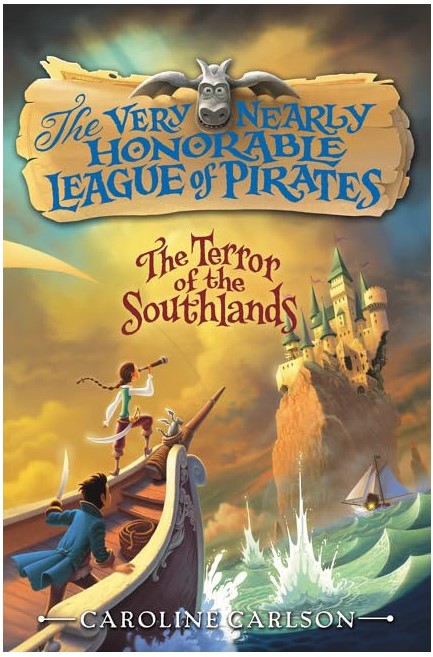
The Terror of the Southlands

Wrath of the Exiles

Jasmine Toguchi, Drummer Girl

The Pout-Pout Fish Goes to School
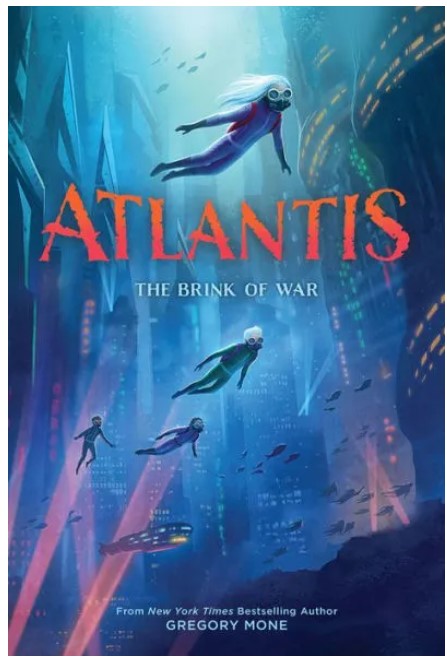
The Brink of War

Get Well, Crabby

The Pet Store Sprite
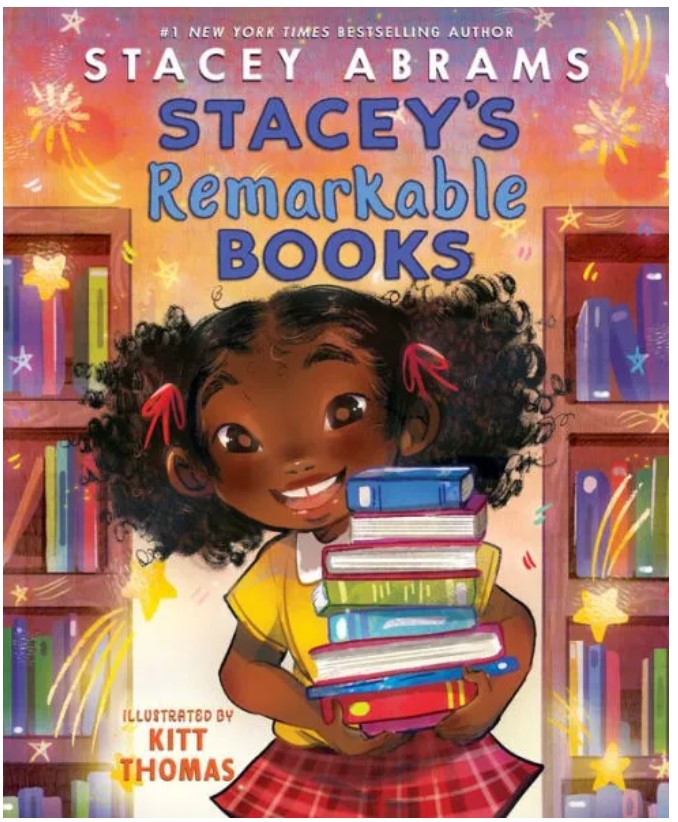
Stacey’s Remarkable Books
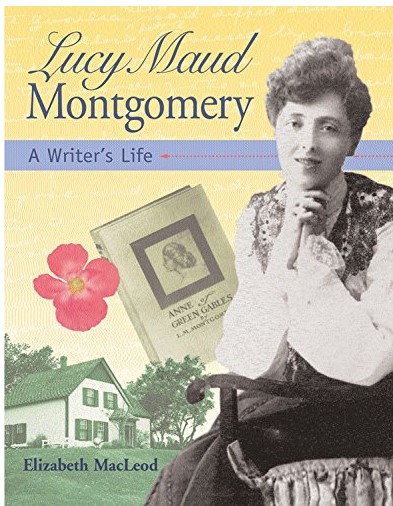
Lucy Maud Montgomery: A Writer’s Life
